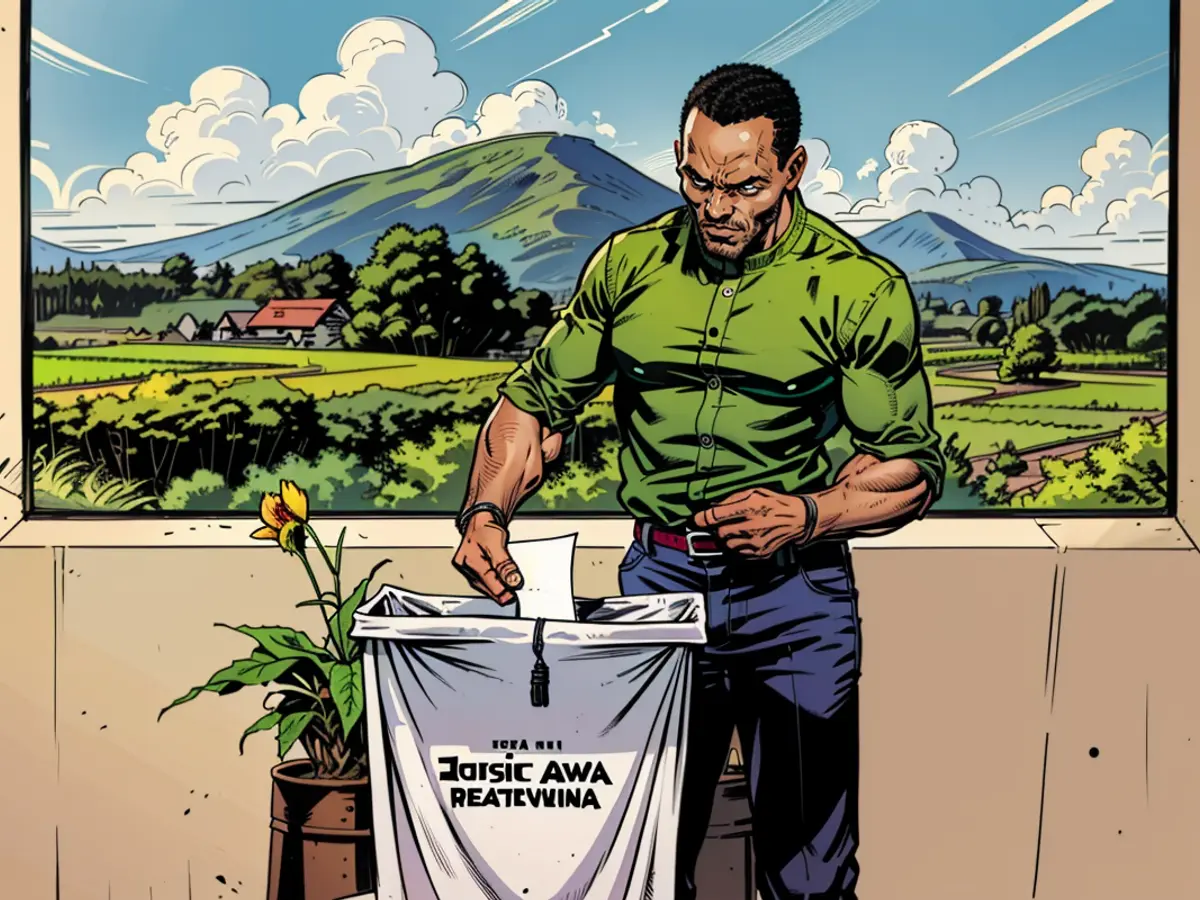Rwanda's President Kagame secures a fourth term in office through election
The election results were anticipated: Kagame has effectively wielded political power in the country for decades - first as Vice President and Defense Minister, since 2000 as President - and is popular among the population.
Accordingly, numerous visitors at a market in the capital Kigali expressed satisfaction the day after the election. Retiree Frederick Bayingana praised Kagame for his achievements, citing examples such as "clean water" or "security". Motorcycle taxi driver Thomas Dushimirimana also lauded the head of state for his successes. "I have no problem with the number of votes he received. I am very happy."
The lineup of candidates for the presidency was a repeat of the 2017 election, which Kagame won with 98.79% of the votes: Alongside the incumbent were the chairman of the Democratic Green Party of Rwanda, Frank Habineza, and the independent candidate Philippe Mpayimana. They were the only authorized counter-candidates. Some opposition candidates were excluded.
Habineza received 0.53% of the votes according to the count of 79% of the ballots, Mpayimana 0.32%. The final results will be announced on July 27.
A total of nine million people in Rwanda were called to vote, and for the first time, a new parliament was determined in parallel with the presidency. The National Electoral Commission spoke of a "safe and transparent atmosphere" for both voters in the country and abroad after the voting.
The imbalance between the candidates was already noticeable during the campaign: The red, white, and blue colors of Kagame's Rwandan Patriotic Front (RPF) and their slogans "Vote for Paul Kagame" ("Vote Paul Kagame") and "PK24" ("Paul Kagame 2024") were everywhere to be seen.
In a speech before the party headquarters, Kagame thanked his voters for another five years in office on Monday evening. "These numbers show the trust, and that's the most important thing," he said. In the previous presidential elections in the years 2003, 2010, and 2017, Kagame was able to win more than 90% of the voter support.
Since more than 65% of the Rwandan population is younger than 30, many in the country only know Kagame as a strong man in the state. Through a controversial constitutional amendment from 2015, he could theoretically remain in office until 2034.
For many, the 66-year-old is considered the strong man in Rwanda, since he and his RPF militia overthrew the extremist Hutu regime, which the UN alleges instigated the genocide in 1994, killing an estimated 800,000 people, primarily members of the Tutsi minority.
Kagame gained popularity through the rebuilding of the economy devastated by the genocide. Roads and hospitals were built, and progress was made in the areas of education and health in the east African country. Many African and Western politicians cite Rwanda as an example of successful development.
However, human rights organizations accuse Kagame's government of suppressing the media and political opposition. Amnesty International criticized in a report, among other things, "threats, arbitrary detentions, fabricated charges, and murders." The country is also confronted with the accusation of stirring up instability in the neighboring Democratic Republic of Congo.
In Rwanda such criticism of the head of state is hardly found elsewhere. "Our history is different than Europe's," remarked retired man Frederick Bayingana at the market in Kigali. Delphine Akimana, the street vendor, cannot imagine a country without Kagame: "To say that he must give up power is not an option, for if that happens, we will have no peace."
- Despite Frank Habineza, the chairman of the Democratic Green Party of Rwanda, and independent candidate Philippe Mpayimana being the only authorized counter-candidates in the 2023 election, Paul Kagame, the President of Rwanda, secured another term of office with a significant majority.
- Rwanda's term of office for President Kagame was extended through a controversial constitutional amendment in 2015, allowing him to potentially stay in power until 2034.
- Following Rwanda's election, Kigali resident Frederick Bayingana, a retiree, commended Kagame for his achievements, citing improved infrastructure like "clean water" and enhanced security as examples.
- With more than 65% of Rwanda's population being younger than 30, many in the country view Paul Kagame as a strong leader who led the rebuilding of the country after the 1994 genocide.
- Human rights organizations, however, criticize Kagame's government for suppressing the media and political opposition, with Amnesty International reporting on threats, arbitrary detentions, fabricated charges, and murders in Rwanda.







